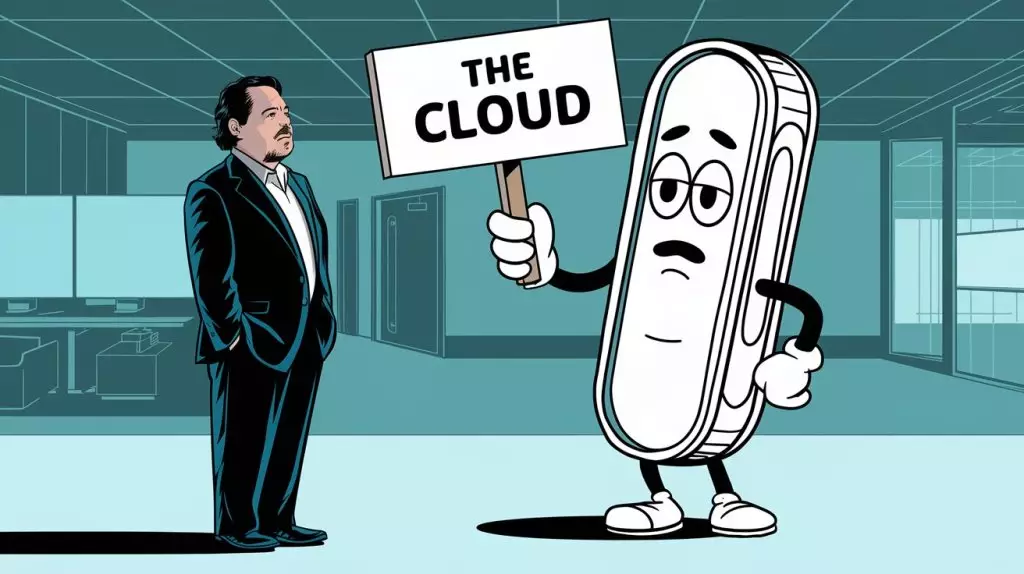In the technology sector, competition can often lead to polarizing statements, particularly when large players like Marc Benioff, co-founder and CEO of Salesforce, publicly cast doubt on the offerings of competitors. In a recent post on X, formerly known as Twitter, Benioff did just that by disparaging Microsoft’s AI assistant, Copilot, labeling it “disappointing” and lacking in accuracy. The comparison he drew, dubbing it “Clippy 2.0,” is not merely a humorous aside but a striking indictment that reflects broader concerns about the effectiveness of AI technologies in practical applications.
For many tech users who grew up in the 90s, Clippy—Microsoft’s animated assistant—remains a vivid memory, often associated with interruptions and misguided help during their computing tasks. It’s worth remembering that Clippy was intended to enhance user experience but quickly became a source of annoyance. Benioff’s comparison of Copilot to Clippy taps into this cultural narrative, suggesting that despite advancements in AI capabilities, the implementation still leaves much to be desired.
Benioff’s remarks resonate with users who may feel that, like Clippy, these new AI tools often disrupt rather than enhance productivity. This reflects a significant challenge that tech companies face: ensuring that innovations genuinely meet user needs rather than merely serving as flashy upgrades that miss the mark in functionality.
Benioff’s critique underscores a competitive landscape marked by continuous warfare among tech giants. As the co-founder of Salesforce, a direct competitor to Microsoft’s Dynamics 365 CRM, Benioff has vested interests in promoting the efficacy of his own company’s AI tools while undermining those of rivals. His comments on Copilot, marred by a certain inevitability of corporate politics, question whether the AI features rolled out by major firms, including Microsoft, truly provide the promised value or simply serve as marketing buzzwords.
Salesforce has positioned itself as a trailblazer in customer relationship management through innovative AI solutions. However, Benioff’s contradictory statements complicate this narrative. While expressing disillusionment with AI’s current contributions to critical global issues such as healthcare and climate change, he simultaneously touts excitement around Salesforce’s own offerings, particularly the new enterprise AI agent builder tool dubbed Agentforce.
Benioff’s critique raises pertinent questions about the promises made by AI proponents. He believes AI’s narrative has become inflated, describing a technological luminary that is “oversold.” While this skepticism is healthy, it stands in stark contrast with his enthusiasm for Salesforce’s AI advancements. This contradiction suggests a nuanced understanding of technology: AI has potential but requires responsible implementation that genuinely serves business needs rather than merely fueling hype.
It’s critical to evaluate whether customer perception aligns with corporate messaging. The tech community, along with regular consumers, are increasingly discerning. They are aware that not all AI technologies adequately deliver on their promised capabilities. Benioff’s challenge lies in convincing stakeholders that Salesforce’s methodology represents the superior path forward amidst a landscape increasingly littered with lackluster applications.
Interestingly, the timing of Benioff’s critique suggests a broader shift in narrative surrounding generative AI. Public relations expert Ed Zitron, among others, has pointed out that Benioff’s skepticism may indicate a growing disillusionment in the pro-generative AI camp. This shift raises intriguing questions about the sustainability of AI enthusiasm fueled by high-profile endorsements and marketing strategies.
As the narrative evolves, the intrinsic value of AI solutions must undergo rigorous examination. Companies, particularly from established players like Salesforce and Microsoft, are called to provide clear evidence of well-functioning implementations that deliver tangible benefits to users—not just tech jargon that captures headlines.
Benioff’s critical perspective on Microsoft’s Copilot serves as a bellwether for the broader discussions surrounding AI technologies in business environments. While competition will continue to thrive and companies play the game of one-upmanship, the onus remains on technology developers to ensure they deliver products that genuinely enhance user experience. This call for clarity and effectiveness in AI applications is crucial, as merely being “better” than a competitor may not suffice in an increasingly sophisticated market. As businesses forge ahead in implementing AI systems, the challenge remains to cultivate solutions fostering genuine advancements in productivity and user satisfaction.


Leave a Reply